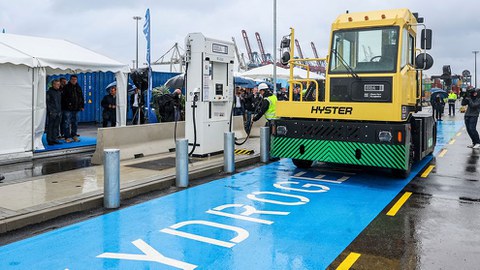Aug 09, 2024
German government adopts comprehensive import strategy for hydrogen
For a climate-neutral economy
Germany is aiming for a climate-neutral economy by 2045, which will require a far-reaching transition, particularly in energy-intensive industries such as steel, chemicals and cement. In this context, the German government has adopted an ambitious import strategy for hydrogen to supplement the national hydrogen strategy and secure the supply of this key energy source.
Increasing hydrogen imports as the key to the energy transition
In future, Germany will be one of the largest importers of hydrogen in the world. The German government plans to use between 95 and 130 terawatt hours (TWh) of hydrogen and hydrogen derivatives by 2030, of which 50 to 70 percent will have to be imported. Demand is set to rise to between 360 and 500 TWh by 2045. Hydrogen derivatives such as ammonia and methanol play a decisive role in this, as they facilitate the transportation and storage of hydrogen.
Diversified supply sources and strategic partnerships
The import strategy is based on a broad diversification of supply sources. With the North Sea, Baltic Sea, Mediterranean and Black Sea, Europe offers good conditions for the production of hydrogen. In addition, increased cooperation with countries bordering the EU and countries in North Africa is being sought. Existing partnerships, for example with Canada and Namibia, are to be further expanded in order to meet the future demand for green hydrogen.
Infrastructure development for hydrogen imports
In parallel to the import strategy, the German government is promoting the expansion of the infrastructure for hydrogen imports. By 2027/2028, a hydrogen network with over 1,800 kilometers of pipelines is to be created. The comprehensive network development planning includes both the natural gas network and the future hydrogen transport network.
Hydrogen as a key energy source in various sectors
Hydrogen will not only play an important role in industry, but also in shipping, air and heavy goods transport. Electricity-based fuels, hydrogen derivatives and hydrogen fuel cell technology are key components for the transition to climate-friendly drive systems. Hydrogen will also be used in the heat supply sector in the future through appropriate legal framework conditions.
Links to research in the 4th Boysen-TU Dresden-Research Training Group
Many aspects of the German government's hydrogen import strategy can also be found in the research projects of the actual Research Training Group. Cluster E, for example, is investigating various aspects of a strategic partnership for hydrogen imports with countries in the MENA region. Cluster H looks at the entire value chain from a techno-economic perspective, from production and distribution to the most efficient use of hydrogen and its derivatives. The projects carried out in the Research Training Group contribute to creating the scientific basis for implementing the national hydrogen strategy and promoting Germany's climate neutrality.
The full version of the import strategy for hydrogen and hydrogen
hydrogen derivatives can be found here.

